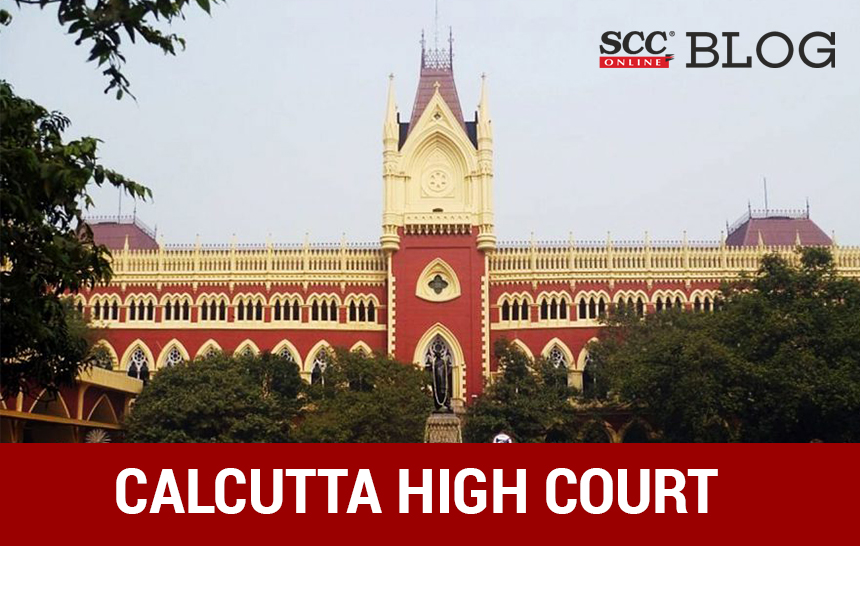Calcutta High Court | While allowing a writ petition praying to refund of penalty amount, Bibek Chaudhuri*, J., held that the petitioners cannot be held liable for the failure of the bank in not sending the money by RTGS and directed respondent to refund the penalty amount.
In the instant matter, the Central Board of Indirect Taxes and Customs issued Sabka Vishwas (Legacy Dispute Resolution) Scheme, 2019. Vide order dated 07-12-2017, the petitioners were directed by the respondent 3 to pay tax (including cess) of Rs.7,83,780/- for the period 2011-2012, 2012-2013, 2013-2014, 2014-2015. The petitioners paid taxes of Rs. 7,41,404/- and Rs. 42,376/- was due.
The petitioners claimed relief under S. 127(8) and R. 9 of the scheme of 2019 before respondent 1/Designated Committee, Siliguri Commissionerate, regarding unpaid amount and deposited 40 per cent of the admitted dues 30-06-2020 through bank challan. Respondent 1 did not issue discharge certificate in Form SVLDRS-4 and imposed penalty for one day’s alleged delay and recovered the amount unilaterally by attachment of bank account of the petitioners. Aggrieved by the action of the respondent 1, the petitioners preferred a writ petition before this Court praying to refund of penalty amount.
The petitioners contended that they are entitled to get relief to the tune of Rs.60 per cent of the remaining amount due to the authority under the Sabka Vishwas (Legacy Dispute Resolution) Scheme, 2019 which was extended upto 15-01-2020 vide notification dated 21-08-2019. The petitioners further contended that the required amount was duly deposited on 30-06-2020 but to technical glitches the same was credited to the account of the respondent authority on 01-07-2020, hence the petitioners cannot be held liable for the same.
The petitioners contended that the recovery of penalty of the respondent authority against the petitioners is illegal and arbitrary and liable to be quashed because as per the notification is the petitioners were under obligation to pay taxes by 30-07-2020 which they did.
Relying on Yashi Constructions v. Union of India, 2022 SCC OnLine SC 723, the respondents contended that when the petitioners wanted to avail the benefit of a particular scheme they have to abide by the terms and conditions of the scheme and since, the petitioners failed to deposit the amount after obtaining relief, they are liable to pay penalty. The respondents further contended that the petitioners cannot claim refund of penalty because according to the banking rules and statutory provision banking rules and statutory provision the date of payment of any tax is on the date of realization of cheque amount and crediting the same in the account of the respondents which is 01-07-2020.
The Court observed that a taxpayer was mandated to make payment of the amount payable within 30 days from the date of this statement, but Rule 7 was amended “on or before the 30th day of June, 2020” was substituted in place of “within a period of 30 days from the date of its issue”. The Court also noted that when a procedural law is amended, it takes effect retrospectively.
The Court observed that Rule 7 requires that the amount of tax is to be deposited electronically and since electronic transfer means transfer by NEFT or RTGS where the amount is immediately credited to the respondent authority, therefore, the petitioners cannot be held liable for the failure of the bank in not sending the money by RTGS on 30-06-2020.
The Court allowed the writ petition and directed the respondents to accept the payment of tax dated 30-06-2020 3 and issue discharge certificate in favour of the petitioners. The Court quashed the imposition and recovery of penalty by the respondent authorities and directed them to refund the penalty amount in 4 weeks.
[Millenium Construction v. Designated Committee, Siliguri Commissionerate, 2023 SCC OnLine Cal 736, decided on 08-02-2023]
*Judgment by Justice Bibek Chaudhuri.
Advocates who appeared in this case :
Mr. Himangshu Kumar Ray and Mr. Abhilash Mittal, Counsel for the Petitioners;
Mr. Sudipto Kumar Mazumder (DSGI) and Mr. Sourab Kar, Counsel for the Union of India;
Mr. Ratan Banik, Counsel for the Respondent.







